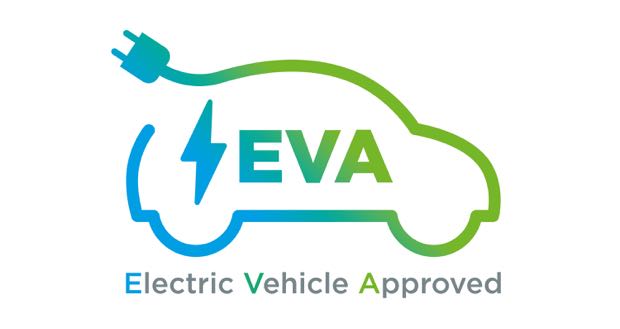 Robin Roberts describes the NFDA’s Electric Vehicle Approved accreditation scheme…
Robin Roberts describes the NFDA’s Electric Vehicle Approved accreditation scheme…
“It is extremely positive to see franchised retailers embrace NFDA’s Electric Vehicle Approved accreditation scheme which demonstrates the efforts the automotive retail industry is making to drive the growth of the electric vehicle sector”, said Sue Robinson, Director of the National Franchised Dealers Association, which represents franchised car and commercial vehicle retailers in the UK.
Electric Vehicle Approved is endorsed by the Government’s Office for Low Emission Vehicles. NFDA launched the scheme in May 2019 to recognise expertise in the electric vehicle sector and promote industry standards for the benefit of the consumer.
This week, EVA reached a key milestone: 50 dealerships have been ‘EV approved’ and will now be able to display their ‘EVA badge’. After six months of operation, there is a variety of EV approved retailers selling several major brands. These include Nissan, Volkswagen, Kia, Hyundai, Renault, Audi, Mitsubishi, JLR, BMW and Volvo.
Since the launch on 15 May 2019, 95% of the available slots have already been allocated and a number of them will be audited over the next months.
Under the EVA scheme, dealerships are independently audited by the Energy Saving Trust to verify that they meet the EVA standards. The standards cover key areas of EV retail and aftersales including retailers’ communication with the consumer, staff training and availability of charge points on site.
Despite the huge growth of the battery electric vehicles sector, a large percentage of motorists still indicate that there are barriers preventing them from buying an electric car. In particular, cost, charging infrastructure and battery range.
Thanks to the EVA badge of approval, retailers will be able to communicate their knowledge and expertise to, ultimately, boost consumer confidence and overcome any perceived barriers. The EVA badge will give consumers more confidence in the retailers and reassure them that EV approved retailers possess all the skills they need to help motorists make an informed decision.
Robinson added, “The electric vehicle sector is experiencing significant growth and retailers see increasing interest from consumers despite a number of challenges. We are confident through the continuous educational process implemented by retailers the current barriers will be overcome.
Franchised retailers are working hard to inform their customers and provide them with the best possible experience. Having consumers recognise and trust the EVA badge will encourage the growth of the sector.
NFDA looks forward to continuing to work with the Government and the Energy Saving Trust to support retailers and help them maximise the opportunities the transition to electric cars will offer”.
Tim Anderson, Head of Transport at Energy Saving Trust said, “It is welcome news that 50 more dealerships have passed EST’s robust and independent audit. This milestone means more people will be able to access a convenient EVA dealership, and dealers are keen to join the quickly expanding network. EVA accreditation guarantees knowledgeable staff to inform a vehicle purchase and an enhanced buying experience, as well as specifically-trained technicians to service and maintain the new or used EV to the highest standard.
“EV Approved accreditation brings together organisations with the shared ambition of increasing the sale of electric vehicles, and is critical to achieve a net-zero emission future in line with government ambition, as transport generates 26 per cent of the UK’s greenhouse gas emissions.”
Two thirds of Brits think electric cars are the future of the motor industry…
Transport currently accounts for almost a third (30%) of the world’s total energy use and around a quarter of the global energy-related carbon dioxide (CO2) emissions.
With climate change high on the news agenda and more consumers than ever making a conscious effort to reduce their carbon footprint, there is no bigger industry that is impacted by this than the travel and motor sector, said innovation specialist MPA.
As part of our Environmental Innovations series, which looks at how British businesses and consumers are adapting to become more environmentally friendly, innovation specialist MPA looks at the biggest factors that are overhauling the industry.
The rise of electric cars
Research conducted by MPA through YouGov Profiles found that almost two thirds (65%) of Brits agreed that we should drive less to save the environment. But with 31.8 million cars on the UK’s roads, a car-less society seems a very distant memory. One of the most environmentally friendly alternatives is electric cars, which create less greenhouse gas and other emissions than cars powered solely by internal combustion engines. It seems the British public agrees, with the research finding that 69% agree that electric cars are the future of the motor industry.
Last year saw 59,945 sales of electric cars in the UK, a record year according to the SMMT, suggesting that alternative drives are a trend that is set to continue. With an increase in consumer demand, manufacturers will have to innovate in order to keep up. One such company is The Nextrode Project, who are working with the University of Warwick to ‘revolutionise the way electrodes for Li-ion EV batteries are manufactured’.
John Lowndes, Director at MPA said, “The travel and motor sector is one of the industries that has seen the most consumer backlash from the increase in public interest in eliminating climate change, so it is great to see that so many businesses are already investing in innovative ways to be more sustainable.